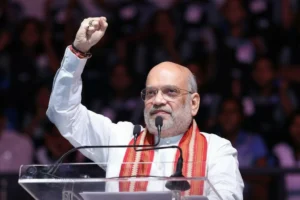
In a historic move, Uttarakhand is set to become the first state in India to implement the Uniform Civil Code (UCC).
The law, which aims to create a uniform set of personal laws governing marriage, divorce, inheritance, and succession, will be rolled out on January 27, 2025, just ahead of Prime Minister Narendra Modi’s scheduled visit to the state. This landmark legislation is already stirring political debates and capturing national attention.
Uttarakhand Leads The Way With UCC Implementation
Shailesh Bagoli, Secretary to the Chief Minister, announced the implementation of the UCC and confirmed that the law would apply across Uttarakhand, including to residents living outside the state. To mark the launch, the state government will unveil a dedicated UCC portal at 12:30 pm at the State Secretariat. Chief Minister Pushkar Singh Dhami will oversee the event, signaling a new era of legal uniformity in the state.
Key Provisions Of UCC
The UCC aims to simplify and standardize personal laws, making them consistent across communities and religions. Among its key provisions:
- Marriage Registration: All marriages must be registered within 60 days of solemnization. For marriages that took place after March 26, 2010, the registration deadline is six months.
- Marriage Criteria: The law allows only mentally capable individuals who have reached the age of 21 (for men) or 18 (for women) and are not already married to enter into a union. While religious customs can still govern the ceremonies, the law mandates marriage registration for legal recognition.
- Succession and Inheritance: The UCC clarifies legal requirements for the creation and cancellation of wills and codicils, standardizing testamentary succession across the state.
The law applies to all residents of Uttarakhand, with exemptions made for Scheduled Tribes (STs) and certain protected communities.
Political Tensions Surrounding The UCC
While the Uttarakhand government celebrates this legal milestone, the move has sparked criticism from opposition leaders. Critics argue that the UCC could create divisions along religious lines and may be too ambitious to implement effectively.
Chief Minister Pushkar Singh Dhami has defended the UCC, emphasizing that it aims to ensure a uniform legal system for all citizens, not create societal divisions. “This is not any divisive politics. UCC has a uniform system and uniform law for all,” he stated.
The UCC Portal: A Step Towards Simplicity
In tandem with the UCC’s rollout, Uttarakhand will also launch a user-friendly online portal designed to streamline the registration of marriages, divorces, succession, and live-in relationships. The portal aims to make legal processes more accessible, allowing citizens to complete registrations from the comfort of their homes. The system will provide real-time updates via email and SMS and include a transparent complaint redressal mechanism.
National Implications Of Uttarakhand’s Move
The UCC has long been a national topic, especially concerning Article 44 of the Indian Constitution, which calls for a common code. Prime Minister Narendra Modi highlighted its importance in his Independence Day speech, stressing the need to fulfill the framers’ vision.
Uttarakhand’s decision to implement the UCC is likely to influence other states to follow suit. However, the law’s success will depend on its ability to balance individual rights to promote social harmony.
Also Read: Republic Day Celebrations: India’s Military Prowess, Rich Heritage On Display At Kartavya Path
To read more such news, download Bharat Express news apps





















